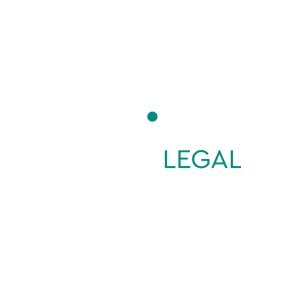Best Renewable & Alternative Energy Lawyers in Mauritius
Share your needs with us, get contacted by law firms.
Free. Takes 2 min.
Or refine your search by selecting a city:
List of the best lawyers in Mauritius
About Renewable & Alternative Energy Law in Mauritius
Renewable and alternative energy is an essential focus in Mauritius as the nation aims to reduce its dependence on fossil fuels and move toward a more sustainable future. The government has put in place several policies and legal frameworks to encourage the development and use of renewable energy sources, including solar, wind, hydro, and biomass. The primary objective is to increase the share of renewables in the country's energy mix, reduce greenhouse gas emissions, and meet international commitments for sustainable development. As a result, Mauritius has established regulatory frameworks, incentives, and licensing systems for individuals and companies who wish to participate in renewable and alternative energy activities.
Why You May Need a Lawyer
Legal guidance is often crucial in navigating the renewable and alternative energy sector in Mauritius. Here are some common situations where legal help may be needed:
- Permitting and Licensing: Understanding and obtaining the correct permits and licenses is a complex process subject to regulatory oversight.
- Project Development: Negotiating contracts, lease agreements for land, or joint ventures often requires careful legal drafting to protect your interests.
- Incentive Applications: Accessing government incentives or subsidies involves compliance with specific requirements and may require legal documents and formal submissions.
- Regulatory Compliance: Keeping up with changing environmental regulations, safety standards, and reporting requirements is a must for any entity involved in energy production or distribution.
- Dispute Resolution: Conflicts can arise related to project implementation, land use, intellectual property, or contractual obligations.
A lawyer familiar with renewable and alternative energy law can help navigate these issues, mitigate risks, and ensure legal compliance throughout your project lifecycle.
Local Laws Overview
Mauritius has created several laws and policies to regulate the renewable and alternative energy sector. Some key aspects include:
- Electricity Act and Energy Regulations: These laws set out the legal framework for the generation, distribution, and sale of electricity, including from renewable sources.
- Renewable Energy Schemes: The government has launched programs such as the Small Scale Distributed Generation (SSDG) and Medium Scale Distributed Generation (MSDG) schemes that enable individuals and businesses to generate electricity from renewable sources and sell excess power to the national grid.
- Environmental Protection Act: Renewable energy projects must comply with environmental standards, including environmental impact assessments when required.
- Investment Incentives: The Economic Development Board and other authorities offer benefits and incentives to promote investments in renewable energy infrastructure.
- Grid Access: Legal provisions set out the conditions under which independent power producers may access and connect to the national grid.
Understanding these legal requirements is critical for anyone planning to engage in renewable and alternative energy projects in Mauritius.
Frequently Asked Questions
What types of renewable energy projects are commonly developed in Mauritius?
Solar photovoltaic installations, wind farms, hydroelectric projects, and biomass energy production are among the most common types of renewable energy projects in Mauritius.
Do I need a license to set up a solar or wind power system?
Yes, most renewable energy installations, including solar and wind systems, require a license or permit from relevant authorities before construction or connection to the grid.
Can individuals sell electricity generated from renewable sources back to the grid?
Yes, under programs like the SSDG and MSDG schemes, individuals and businesses can sell surplus electricity generated from renewable sources to the national grid, subject to certain conditions.
Are there any tax incentives or subsidies for renewable energy investments?
The government offers various tax incentives and subsidies for qualifying renewable energy projects. These can include import duty exemptions, tax holidays, or capital allowances.
What environmental regulations apply to renewable energy projects?
Projects must comply with the Environmental Protection Act, which may require environmental impact assessment reports and ongoing compliance with emission and waste standards.
How long does it take to obtain permits for a renewable energy project?
The timeline varies depending on the project size and type, but the permitting process can take several months due to technical, environmental, and regulatory reviews.
Is foreign investment allowed in the renewable energy sector?
Yes, Mauritius encourages foreign investment in renewable energy, but investors must comply with local laws, including company registration and regulatory approvals.
Who regulates the electricity market in Mauritius?
The utility company (Central Electricity Board) and regulatory bodies, such as the Utility Regulatory Authority, oversee the electricity market, including renewable energy integration.
Can land be used for renewable energy projects?
Yes, but land use for energy projects is subject to zoning, environmental, and planning regulations. Lease or purchase agreements should be reviewed for compliance.
How can disputes related to renewable energy projects be resolved?
Disputes can be settled through negotiation, mediation, arbitration, or litigation, depending on the contract terms and the nature of the disagreement.
Additional Resources
For more information and support, the following resources in Mauritius may be helpful:
- Ministry of Energy and Public Utilities: Responsible for policy and oversight of the energy sector, including renewables.
- Central Electricity Board (CEB): Manages the generation and distribution of electricity and oversees grid connections for renewable producers.
- Economic Development Board (EDB): Provides guidance, incentives, and support for investment in renewable energy.
- Utility Regulatory Authority: Responsible for regulating and licensing entities in the utilities sector.
- Mauritius Renewable Energy Association: An industry group representing renewable energy stakeholders.
Next Steps
If you are considering entering the renewable and alternative energy sector in Mauritius or need assistance with an existing project, here are suggested next steps:
- Identify your project needs: Clarify whether you need help with licensing, regulatory compliance, investment incentives, project finance, or resolving disputes.
- Gather documentation: Prepare all relevant documents, such as land agreements, technical plans, environmental reports, and business plans.
- Consult a legal expert: Engage a lawyer who specializes in renewable and alternative energy law in Mauritius. They can guide you through the regulatory process, assist with drafting and reviewing legal documents, and provide representation if needed.
- Stay informed: Keep up to date with changes in regulations and industry practices through government agencies, industry associations, and professional advisers.
By following these steps and seeking appropriate legal guidance, you can navigate the complexities of renewable and alternative energy projects in Mauritius with greater confidence and compliance.
Lawzana helps you find the best lawyers and law firms in Mauritius through a curated and pre-screened list of qualified legal professionals. Our platform offers rankings and detailed profiles of attorneys and law firms, allowing you to compare based on practice areas, including Renewable & Alternative Energy, experience, and client feedback.
Each profile includes a description of the firm's areas of practice, client reviews, team members and partners, year of establishment, spoken languages, office locations, contact information, social media presence, and any published articles or resources. Most firms on our platform speak English and are experienced in both local and international legal matters.
Get a quote from top-rated law firms in Mauritius — quickly, securely, and without unnecessary hassle.
Disclaimer:
The information provided on this page is for general informational purposes only and does not constitute legal advice. While we strive to ensure the accuracy and relevance of the content, legal information may change over time, and interpretations of the law can vary. You should always consult with a qualified legal professional for advice specific to your situation.
We disclaim all liability for actions taken or not taken based on the content of this page. If you believe any information is incorrect or outdated, please contact us, and we will review and update it where appropriate.
Browse renewable & alternative energy law firms by city in Mauritius
Refine your search by selecting a city.
















